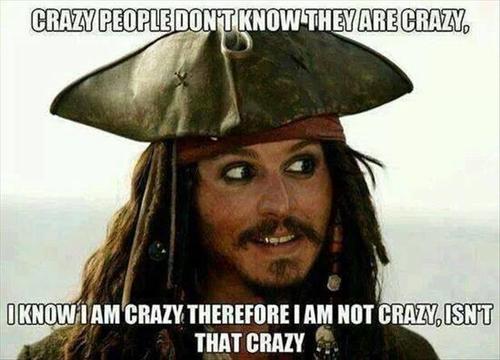TRUTH & FEAR IN A MULTI-COLORED WORLD
A rumor began a month ago that someone had been throwing around the phrase “No blacks allowed in the bar.” You might think this is serious but just wait.
That’s the question.
How far is too far? I guess the reason why it seems so questionable (pardon the metaphor) is the path between crying and laughing around the tiptoe-lined boundaries. My mother used to say, “Life isn’t fair. You’re going to have to get used to it.” So you can either split a lip or laugh at the dumb things people say, (or) you can waste your screams and tears over it.
Woody Allen dealt with this in a cult film not too many audiences saw: Melinda and Melinda is a story about a woman’s life told as if it had gone two different directions for the same person. This isn’t a new tale but it is an interesting one – life as it could be re-told as both a tragedy and comedy. So one could say the narrative was (either-or), or simply (and). I prefer to think of Melinda as living in parallel universes, both going on coincidentally, simultaneously, and without the major elements of the other. It replaces the question of “If only,” with the statement: “It is.” If you can’t follow, better watch the video. *Smirk.
The rhetoric one is left with confronts both the cynics and optimists who can accept that racism exists in its pure form of self-righteous anger, but may also in the state of the absurd. What is left? Hope.
This is a convincing step towards nonchalance.
My last post on racism touched on the dangers of fear-mongering when we use swear words to battle ignorance but in so doing create more hate speech. So what about comedy as an alternative? Truthfully I was always against this until I arrived in Nacala.
My life has changed in the past three months as I have been forced into acceptance for the ways things just are here. I used to believe that laughing about things that were serious meant you just did not care. This is not always the case.
For a while I was force-feeding my disdain into my throat and smiling to feign acceptance. Doctors, however, assert that the movement of facial muscles may influence our emotional response – so when we smile we begin to actually feel endorphins. Endorphins can allow people to feel positive. Strange isn’t it? So maybe I was okay. Maybe that’s why I’m still not ‘happy’ about the prevailing attitudes here but I can still ‘deal with it.’
Pragmatism and rationality is always appealing because there are a structured set of rules and I like being practical. If one follows these, then the conclusion is predictable. Hence, it is easy to see that if the premises state racists will continue to show us the ugly side of their opinions, it is logical to assume the response feels ugly, as well.
It should come as no surprise then, that there is so much negative backlash. What if the choice was a nonchalant, cool head? What if comedy allowed people to simply ignore the ugly? It may allow the angry less credence.
A lot of people know who Romeo, Juliet, Hamlet, and King Lear are. The ones who are often forgotten are the jesters– the court humorists who play off the foibles and hubris of everyone around them. It is one of the bard’s most delightful and often-overlooked tools to seduce his audience into listening to the most serious. By making them laugh.
All the world’s a stage;
And all the men and women merely players;
They have their exits and their entrances… —Jacques
>>Act II. Scene vii, As You Like It
A plague o’ both your houses. –Mercutio
>>Act III, Scene i, Romeo & Juliet
Heard it before? Thought so. Is not the fool, as Jacques, Mercutio and many others were – always there to tell a good baudy joke (sexual innuendos have never gone out of style!) but also there to twist the foolish into the profound?
In a digital age where Shakespearean language is buried underneath Twitter and Twilight fans, it is useful to think of how the poet always knew to capture his audience by showing the funniest side of life, then turning the last quip over to show the dirt underneath his fingernails. Literary scholars say this was a device wherein the jester was the only one able to tell us the ugly because guess what? IT WAS THE TRUTH.
After hours of making the audience laugh over stupidity and So I guess in coming back to racism today, the reason why it is so hard to deal with the ugly is that it is true. Maybe that’s why our jesters today (Will Ferrell, Conan O’Brien, Ben Stiller, and Eddie Izzard) are always offending people!
Why not use that logic to deal with what we don’t like and just laugh about it. People may not like it – but if we laugh then perhaps we can say whatever racists, philanthropists, even IRS agents and their ilk don’t like. As Woody Allen shows us, life can be both tragic and comic.
When people say the ugliest thing imaginable, they are really showing their true character of darkest heart. Instead of letting them win, laugh at their stupidity please.
See? I said it nicely.





I love your style, & content. Nice blog!
Thanks Karen! I just had a quick take of your blog as well and will follow your artistic leanings.
I appreciate your interest. I think we can learn from one another! Happy writing..and traveling!
Racists are like the puffballs I remember finding in the yard when I was a child: Ugly little white things, puffed up and mostly hollow, and filled with nasty yellow stuff. Once the air clears you realize there’s no reason to give them another thought.
@theminstrelcitadel – Interesting. I agree that there is space after for the ‘air to clear’ bur I don’t think I will ever feel that I can ignore them and not give them any thoughts. I do think that we as people who understand the serious moral dilemmas in the statements of racists, listening to prejudice etc. have a responsibility to respond in some way. At least, thus far, I have decided that either a) dialogue, b) laughter, or c) pointing out faults and potentially making them feel ridiculous.